Hamas Official Speaking at UK Health Webinar Today
An event hosted by the Arab Organization for Human Rights in the UK, featuring the Director General of Hamas' Health Ministry and controversial commentators, raises concerns about its agenda
Later today (12:00 p.m. New York time), the Arab Organization for Human Rights in the UK will host a webinar titled “Gaza’s Collapsing Health Sector Amid Ongoing Genocide.” The event is framed as a discussion of the humanitarian and medical crisis in Gaza, but the inclusion of an official from Hamas—an organization designated as a terrorist group by the United States, European Union, and others—raises substantive concerns about the credibility, neutrality, and intent of the forum.
The conflict in Gaza has significantly affected medical infrastructure, with reports of hospital overcrowding and widespread shortages of supplies. While these challenges merit serious international attention, the composition of the webinar suggests an event more focused on advancing political narratives than providing a balanced or evidence-based analysis of the crisis.
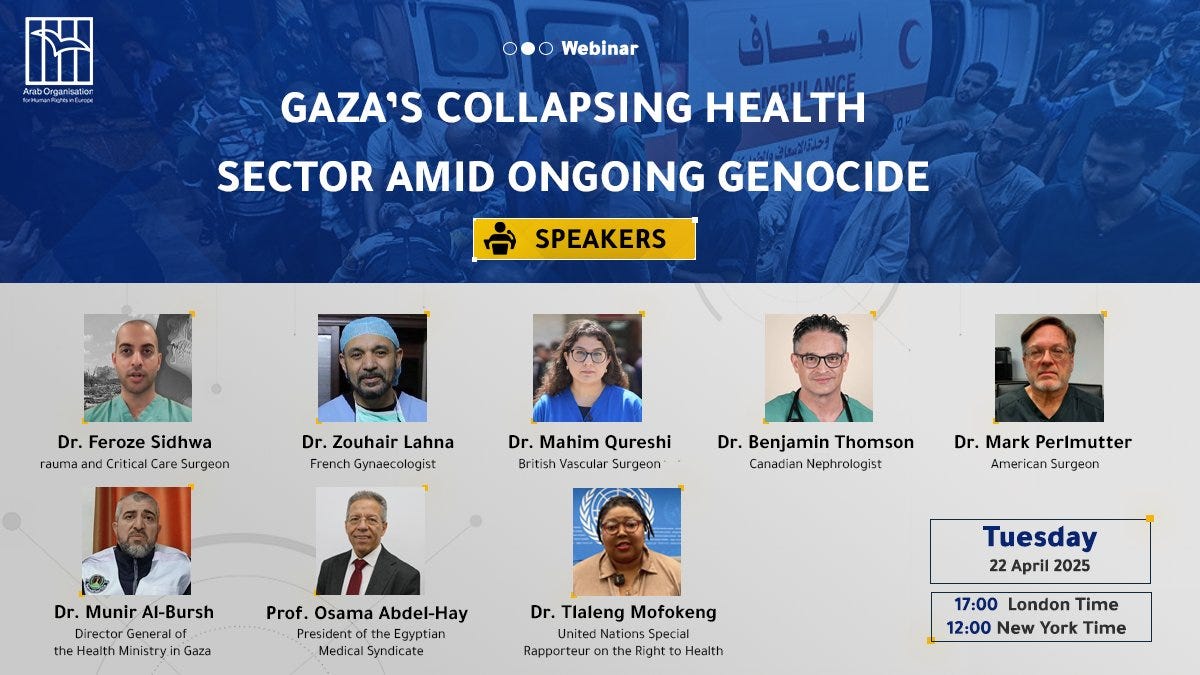
Featured Speaker From Hamas
Chief among the concerns is the participation of Dr. Munir Al-Bursh, Director General of the Hamas-run Gaza Health Ministry. As Jewish Onliner has previously reported, the ministry operates under the direct control of Hamas, and Dr. Al-Bursh has served as a public representative of that governance structure. Given Hamas’s track record of manipulating public messaging and its use of civilian infrastructure for strategic purposes, information presented by Al-Bursh should be approached with caution and evaluated in the context of his affiliation.
Curiously, the webinar’s promotional material fails to note his role in Hamas’ government.
His inclusion raises the possibility that the webinar may function less as a platform for medical transparency and more as an extension of Hamas’s communication strategy. Prior public appearances by Al-Bursh have included overt endorsements of Hamas leadership, further complicating perceptions of neutrality.
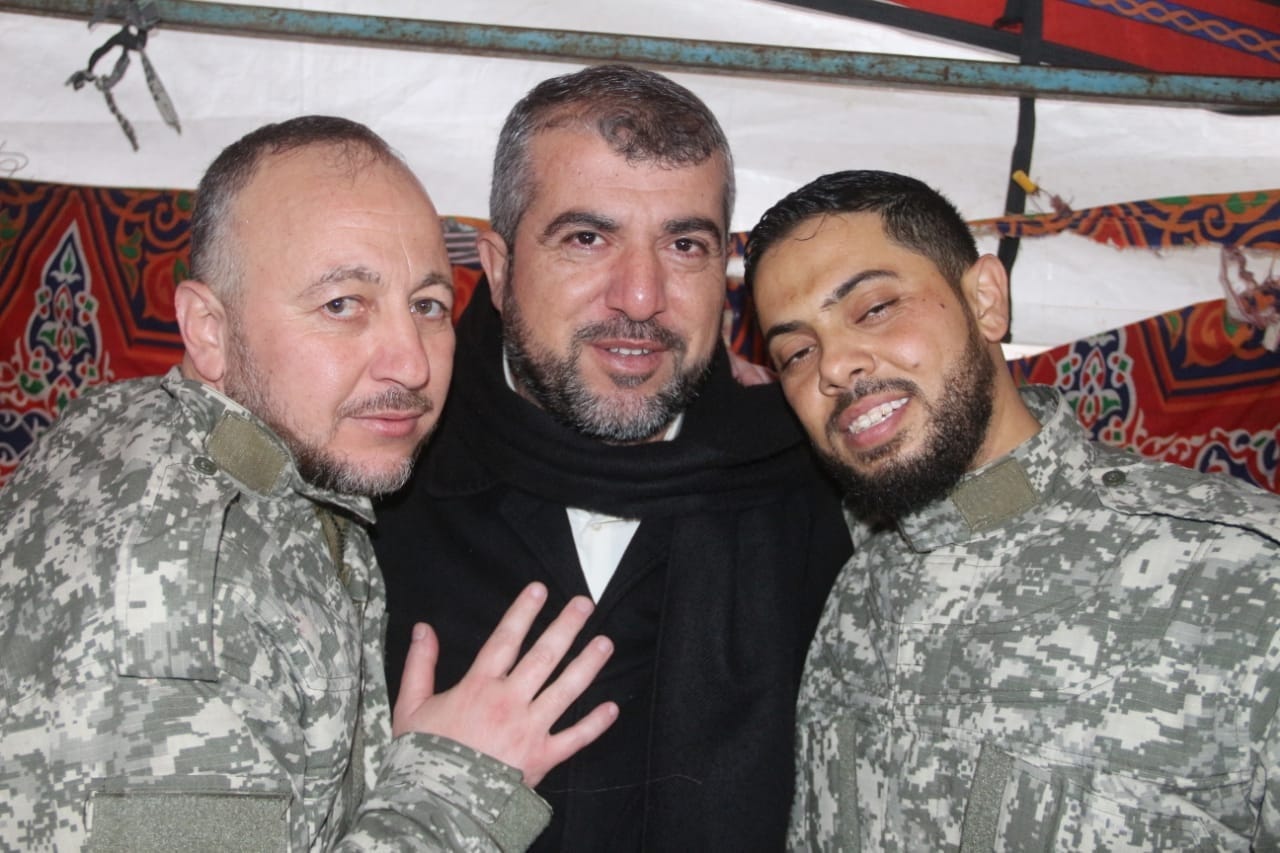
Disputed Medical Claims and Misinformation
Two others webinar speakers—Feroze Sidhwa and Mark Perlmutter—have drawn scrutiny for their roles in promoting contested narratives and questionable data about the conflict in Gaza.
Sidhwa, in particular, has been the source of significant controversy. In an article he a wrote for the New York Times, he presented X-ray images of Gazan children he implies were shot by Israeli forces—a suggestion that has been challenged by numerous healthcare professionals for relying on what they describe as highly speculative interpretations and unverifiable data.
Beyond the op-ed, Sidhwa has demonstrated considerable political bias in his commentary on the conflict, according to watchdog groups. He has allegedly downplayed Hamas’s role in the escalation of violence, including the group’s direct targeting of Israeli civilians. Palestinian peace activists and international observers have noted a apparent tendency to omit or minimize Hamas’s atrocities in public statements and narratives, instead placing disproportionate blame on Israel.
Controversial UN Rapporteur Among Speakers
Rounding out the panel is Dr. Tlaleng Mofokeng, the United Nations Special Rapporteur on the Right to Health. Mofokeng has previously attracted international attention for statements that have sparked criticism from across the political spectrum. She has used inflammatory language on social media, including a profane post targeting Israeli Prime Minister Benjamin Netanyahu, in which she wrote “f**k him.” Moreover, she has publicly stated that Hamas operatives are “not terrorists” and has expressed support for “armed struggle.”
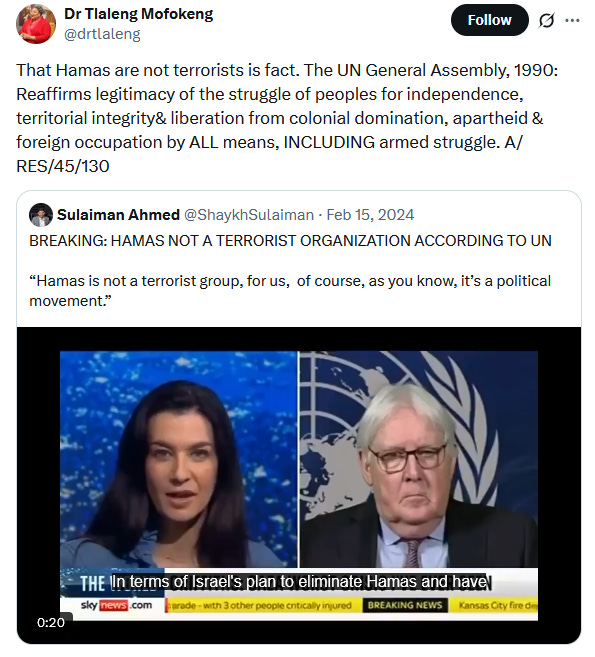
When the Executive Director of UN Watch, Hillel Neuer, raised concerns about Mofokeng’s comments, she responded by calling him an "evil scum White man bastard.”
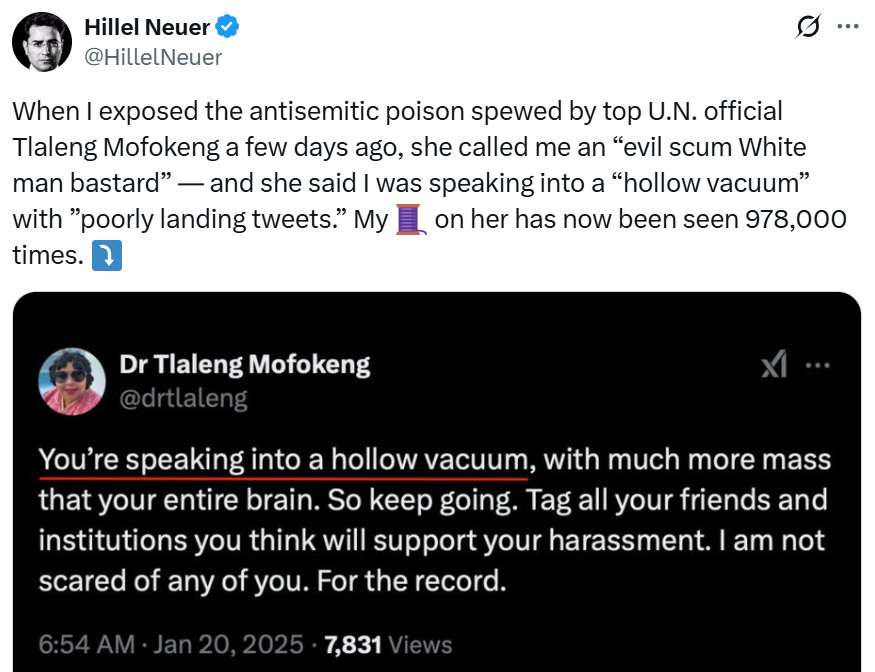
As a UN official tasked with promoting human rights and health access, Mofokeng’s remarks raise concerns about her ability to engage with the Gaza crisis in a way that upholds the impartiality expected of her role.
A Politicized Platform
While the humanitarian toll in Gaza remains severe and requires urgent attention from the global health and aid community, today’s webinar appears to blur the lines between advocacy and propaganda.
Rather than serving as a platform for independent medical analysis or nonpartisan humanitarian coordination, the event is poised to advance a narrative that aligns closely with the political interests of one side in the conflict. The cumulative effect of the speakers’ affiliations and documented histories suggests a forum less focused on facts and more invested in reinforcing a particular worldview.



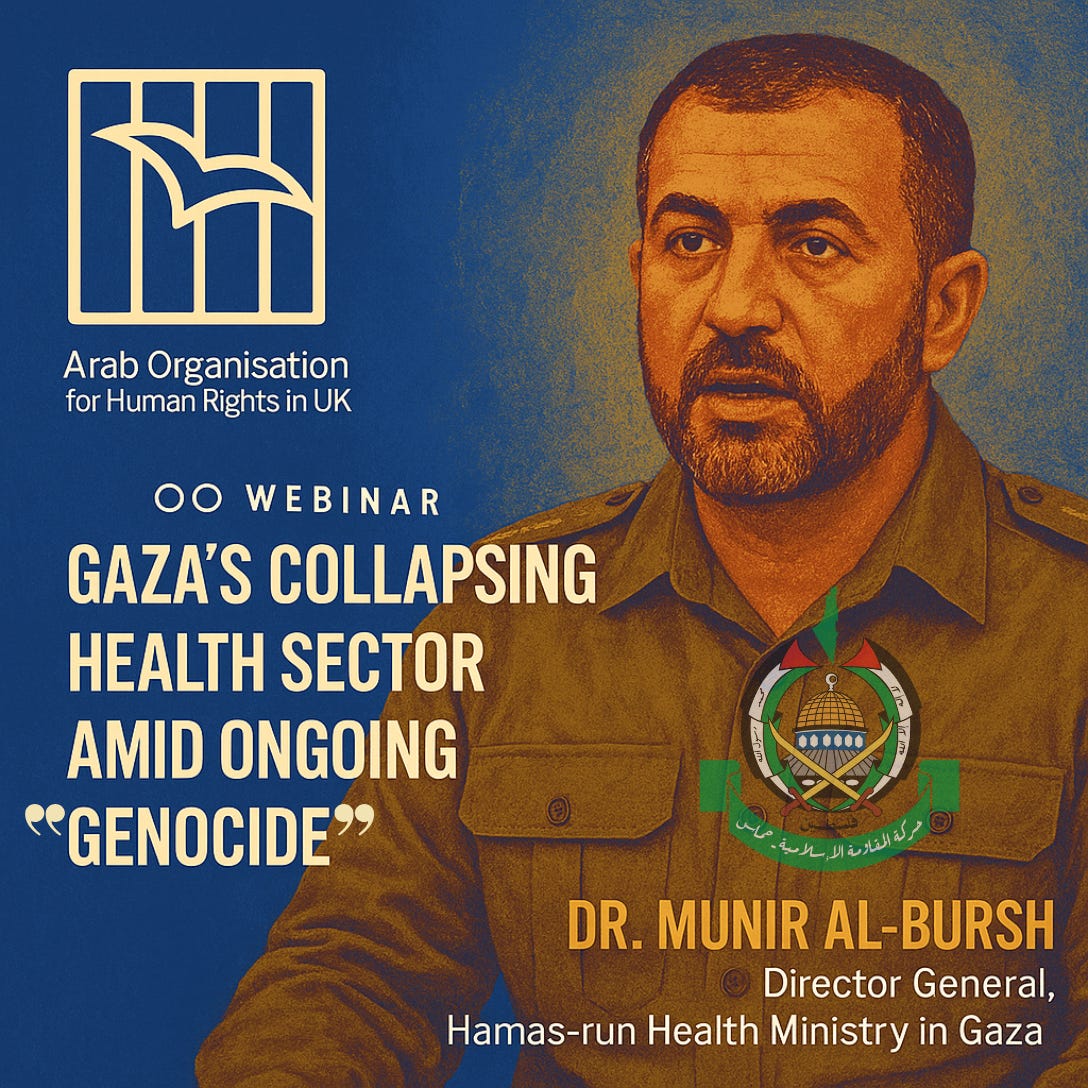

Who gives a fuck about the Gazan health sector.
They all deserve to be dead